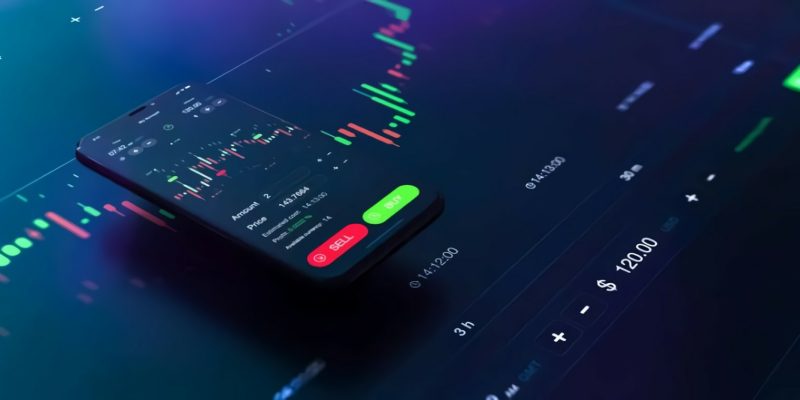By leveraging blockchain technology and smart contracts, Uniswap offers benefits such as increased accessibility, enhanced liquidity, transparency, and security. In this article, we will explore the benefits of Uniswap for derivatives trading and its evolution. Traders can optimize their strategies and capitalize on market trends by leveraging advanced automated trading bots in a trading website, which seamlessly integrates with Uniswap’s decentralized infrastructure.
Exploring the Benefits of Uniswap for Derivatives Trading
Uniswap, a decentralized exchange (DEX) protocol, offers a range of benefits for derivatives trading. By leveraging the power of blockchain technology and smart contracts, Uniswap revolutionizes traditional derivatives trading by providing a more efficient, transparent, and accessible platform. Let’s delve into the benefits that Uniswap brings to the world of derivatives trading.
One of the primary advantages of Uniswap is its ability to lower costs and reduce the need for intermediaries. Traditional derivatives trading often involves multiple intermediaries such as brokers and clearinghouses, leading to high fees and delays. Uniswap eliminates the need for intermediaries, allowing traders to directly interact with the protocol, significantly reducing transaction costs and streamlining the trading process.
Uniswap also offers enhanced liquidity and trading efficiency. Liquidity is crucial in derivatives markets, as it ensures that traders can easily enter and exit positions. With Uniswap, liquidity is provided by a network of liquidity providers who contribute funds to the protocol. This decentralized liquidity pool ensures the continuous availability of trading opportunities and minimizes slippage, providing traders with optimal trading conditions.
Transparency and security are fundamental features of Uniswap. The protocol operates on a public blockchain, allowing anyone to verify transactions and monitor market activity in real time. This transparency builds trust and confidence among traders, as they can verify the fairness and integrity of the trading process. Additionally, Uniswap utilizes smart contracts, which are self-executing agreements with predefined rules. These smart contracts ensure the secure and reliable execution of derivatives trades without the need for intermediaries.
Accessibility and global reach are other significant benefits of Uniswap. Unlike traditional derivatives markets that often have barriers to entry, such as high capital requirements or geographical limitations, Uniswap is open to anyone with an internet connection. This inclusivity allows traders from all over the world to participate in derivatives trading, fostering global liquidity and expanding market opportunities.
The Evolution of Derivatives Trading with Uniswap
The emergence of Uniswap, a decentralized exchange (DEX) protocol, has brought about a significant evolution in the world of derivatives trading. Traditional derivatives markets have long been dominated by centralized entities and intermediaries, introducing inefficiencies and limitations.
In traditional derivatives trading, transactions are conducted through centralized exchanges that act as intermediaries between buyers and sellers. This centralized nature often leads to issues such as limited accessibility, high fees, and lengthy settlement times. Uniswap, on the other hand, operates on a decentralized blockchain, allowing traders to interact directly with the protocol. This eliminates the need for intermediaries and reduces costs, making derivatives trading more accessible to a broader range of participants.
Furthermore, the impact of Uniswap on derivatives trading extends beyond accessibility. The protocol introduces a novel mechanism for market liquidity through its automated market maker (AMM) model. Liquidity providers can pool their assets on Uniswap, enabling continuous trading without the need for counterparties.
Uniswap also brings transparency and security to derivatives trading. By leveraging blockchain technology, all transactions on Uniswap are recorded on a public ledger, accessible to anyone. This transparency promotes trust and accountability, as traders can verify the integrity of the trading process and the accuracy of pricing. Additionally, Uniswap’s use of smart contracts ensures the secure execution of trades without relying on intermediaries, reducing counterparty risk and enhancing the overall security of derivatives trading.
Despite its transformative potential, Uniswap derivatives trading is not without challenges. Regulatory considerations are a key aspect to address. As decentralized finance (DeFi) and Uniswap gain popularity, regulatory authorities are increasingly focusing on establishing guidelines and frameworks. Balancing innovation and compliance will be crucial to ensure the long-term sustainability and legitimacy of Uniswap derivatives trading.
Looking ahead, the future of derivatives trading with Uniswap appears promising. The protocol’s open and decentralized nature fosters innovation and experimentation. Developers and traders can build and deploy new derivatives products on Uniswap, driving forward the evolution of the market. However, as the ecosystem continues to grow, addressing scalability and network congestion will be essential to maintain efficient and seamless trading experiences.
Conclusion
Uniswap’s impact on derivatives trading is undeniable. Its decentralized nature, innovative liquidity provision, transparency, and security features have transformed the landscape. As regulatory frameworks adapt and scalability challenges are addressed, Uniswap is poised to continue shaping the future of derivatives trading, empowering traders worldwide with a more accessible and efficient marketplace.
DISCLAIMER: This article is a partnered post and does not substitute for professional advice or help. Any action you take upon the information presented in this article is strictly at your own risk and responsibility.
Feature Photo by Wance Paleri on Unsplash






Comments